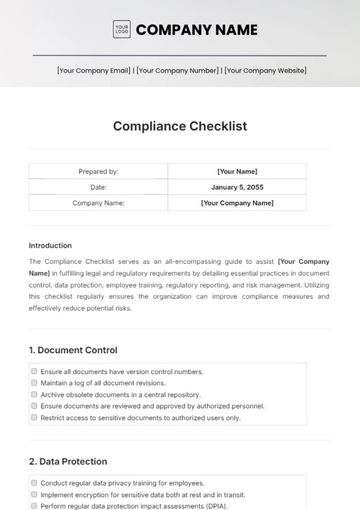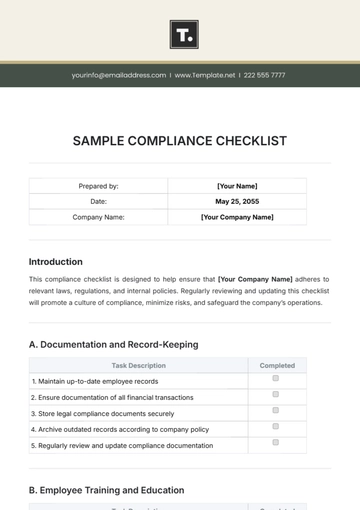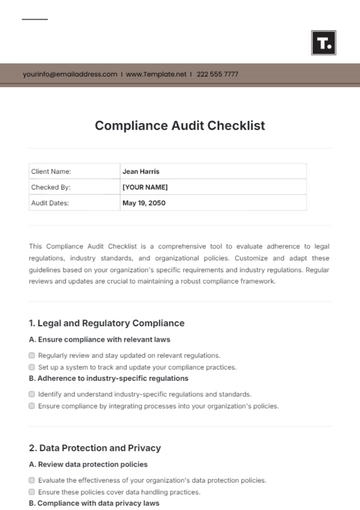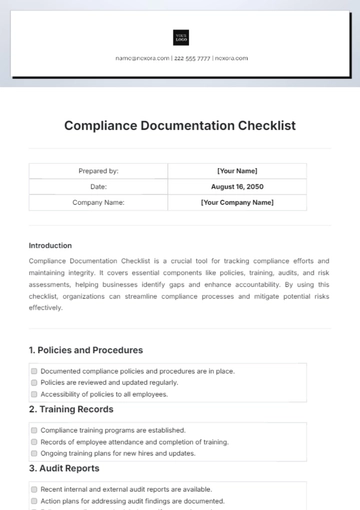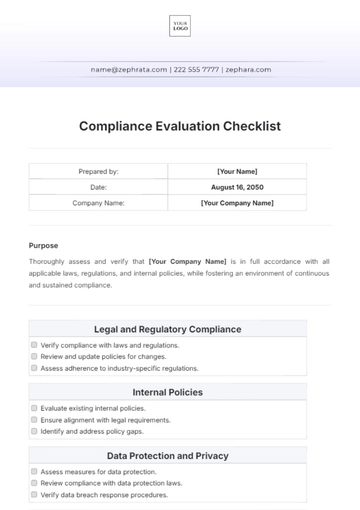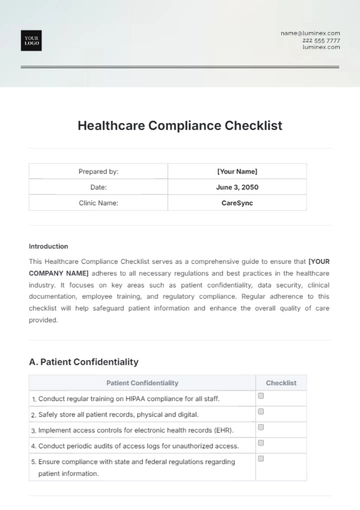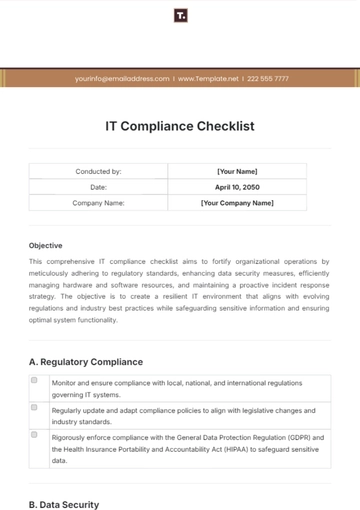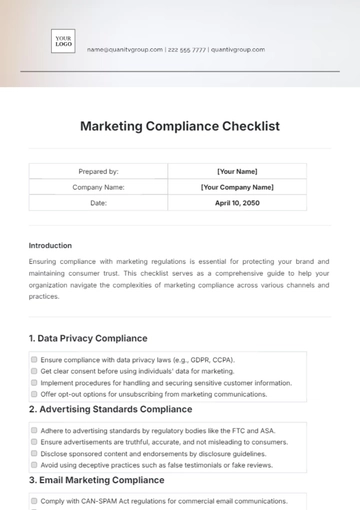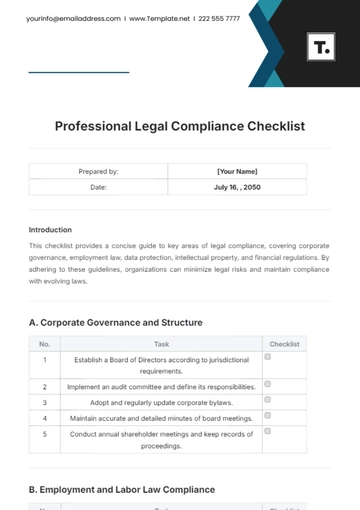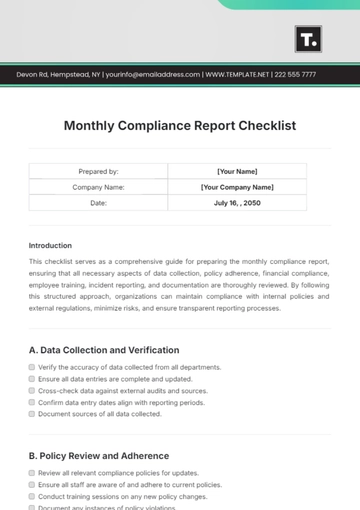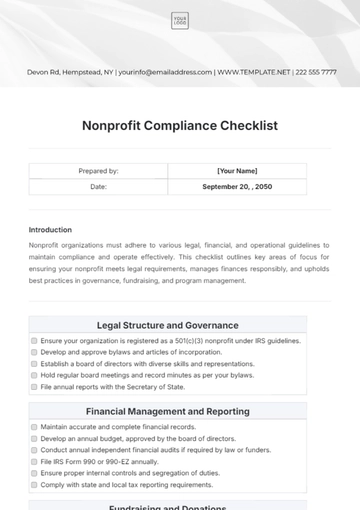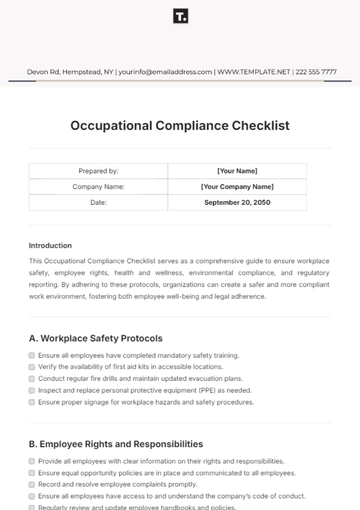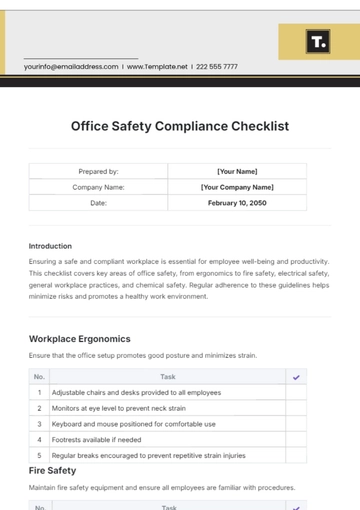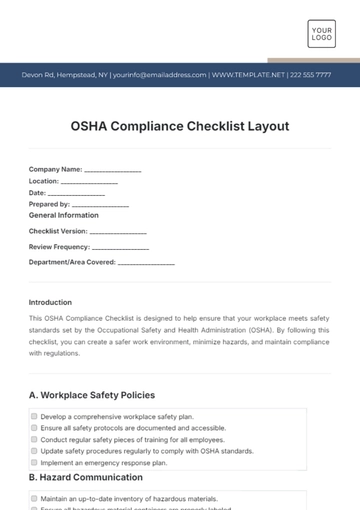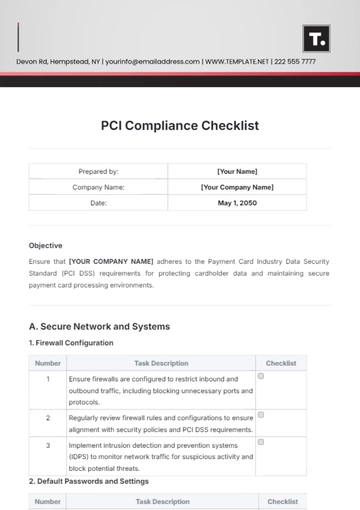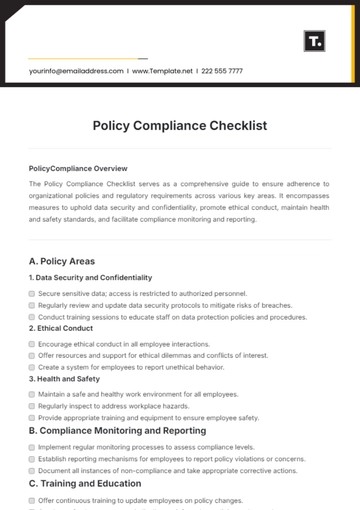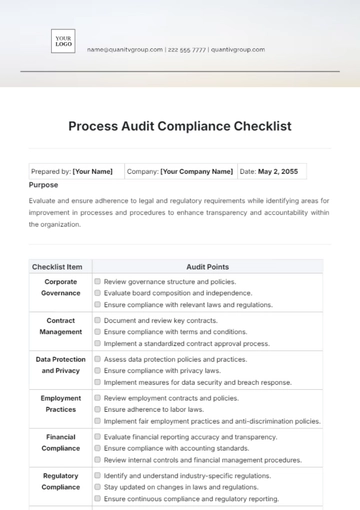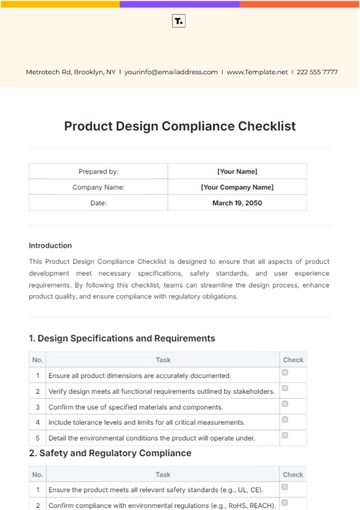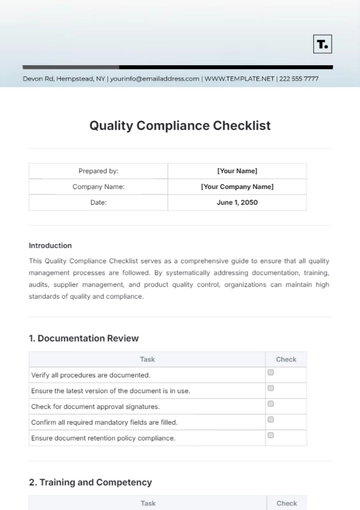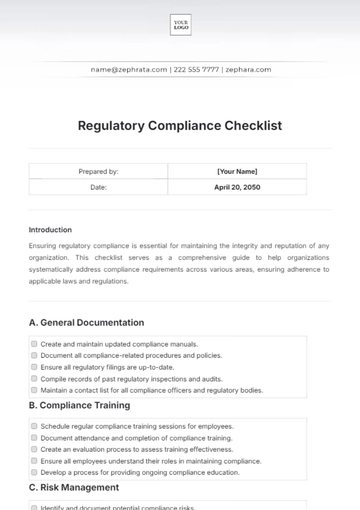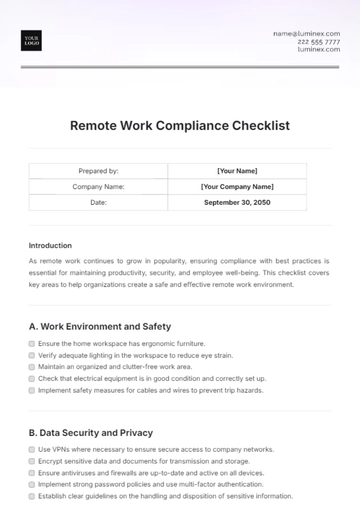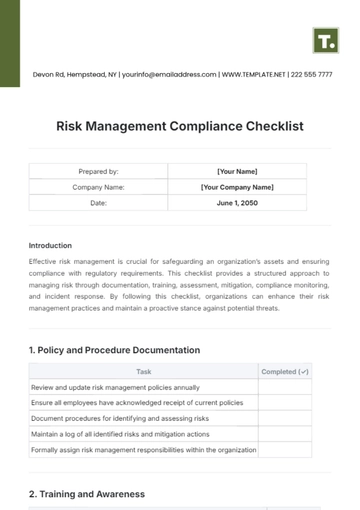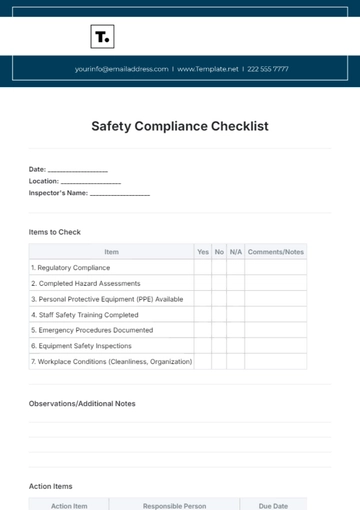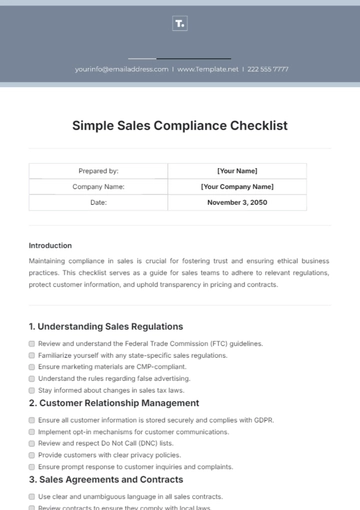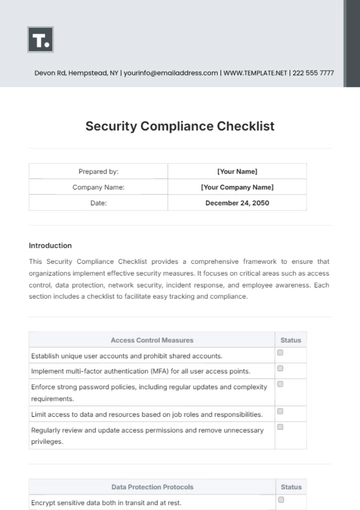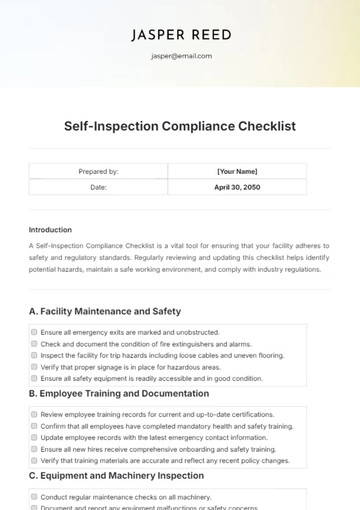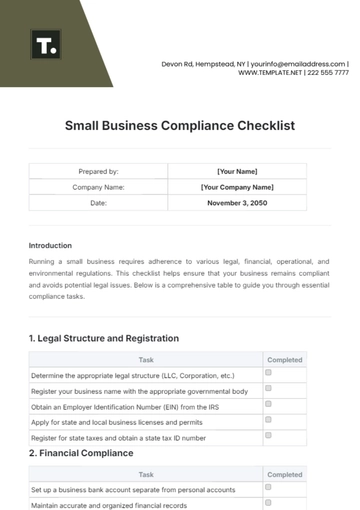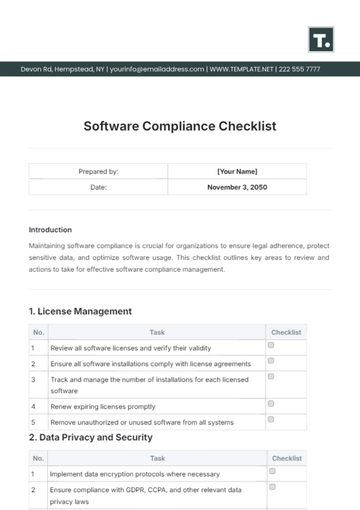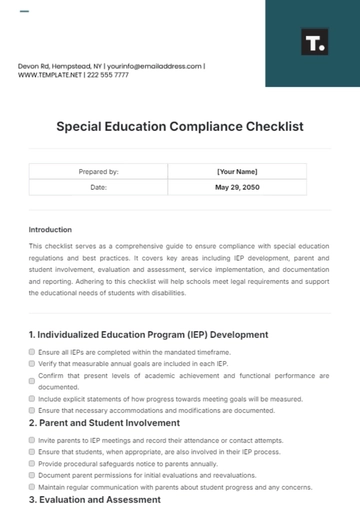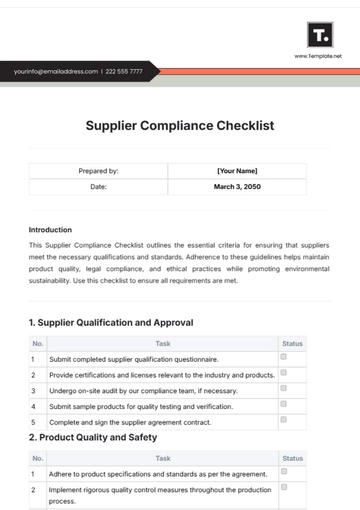Free Higher Education Compliance Checklist
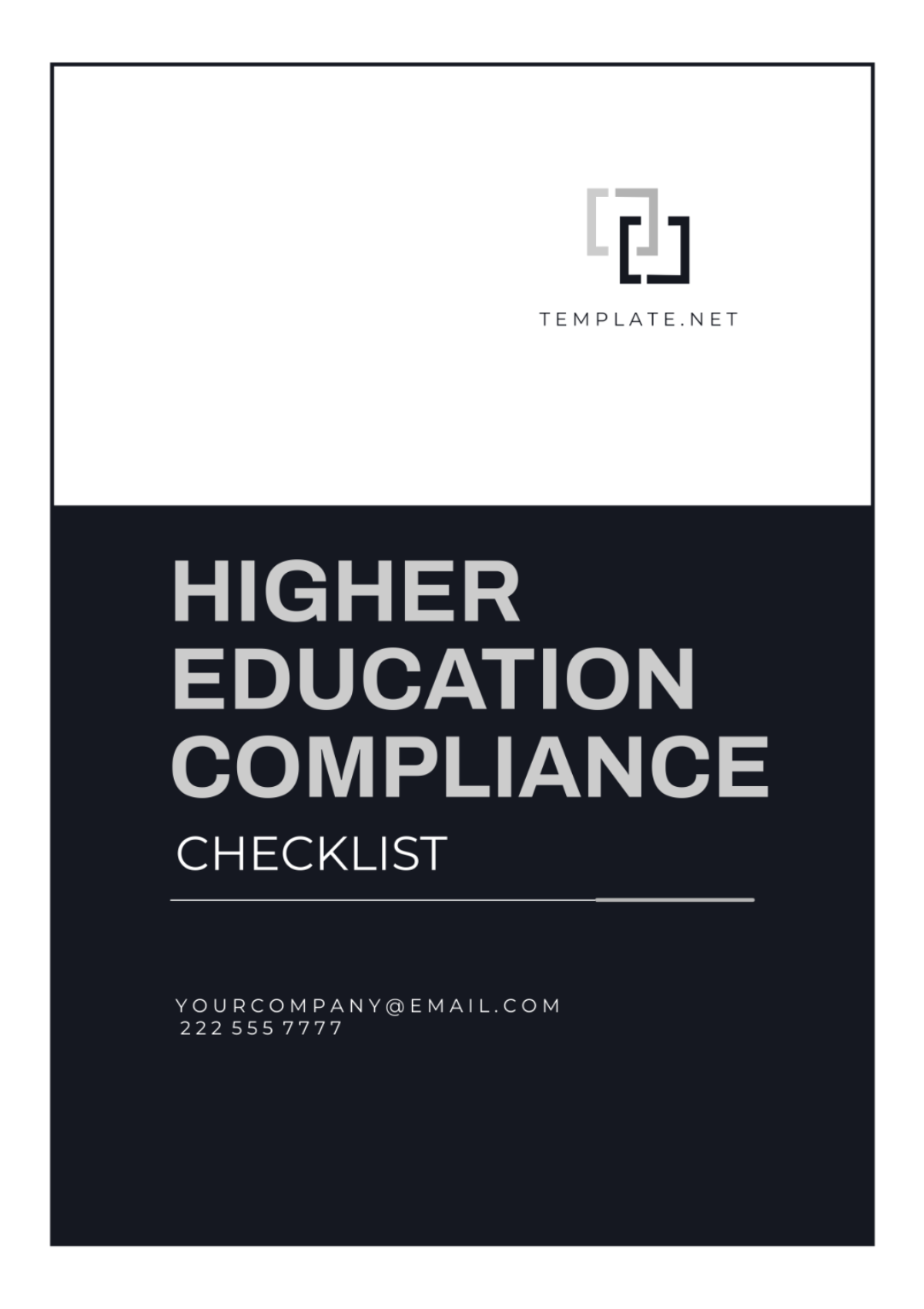
I. Overview
Ensuring compliance across various facets is essential for [YOUR INSTITUTION] to operate ethically, legally, and effectively. Compliance encompasses several areas, including legal, academic, financial, health and safety, and record-keeping/reporting. By adhering to the requirements outlined in various laws and regulations, [YOUR INSTITUTION] upholds standards of integrity and accountability while providing a safe and conducive learning environment for [STUDENTS] and [FACULTY].
II. Legal Compliance
Review and understand the requirements of the Higher Education Act
Ensure [YOUR INSTITUTION] is in alignment with state and federal laws
Review the institution's policies in terms of race, age, gender, and disability discrimination
III. Academic Compliance
Verify the faculty qualifications and credentials
Ensure academic programs meet the standards specified in the region accreditation
Confirm all courses are in alignment with the curriculum requirements of [YOUR INSTITUTION]
IV. Financial Compliance
Validate that all financial aid programs meets the criteria outlined by the Department of Education
Ensure accurate and complete record keeping of all student loans and grants
Verify the institution's tuition and fees are in compliance with state and federal regulations
V. Health and Safety Compliance
Review campus safety reports to ensure compliance with the Clery Act
Verify [YOUR INSTITUTION] compliance with the Drug Free Schools and Communities Act
Check laboratory safety measures for alignment with OSHA standards
VI. Record Keeping and Reporting Compliance
Review records and data retention policies
Ensure proper maintenance of student education records under the Family Educational Rights and Privacy Act (FERPA)
Check if [YOUR INSTITUTION] reporting of crime data is in compliance with the Clery Act
VII. Monitoring and Auditing
Establish compliance monitoring procedures.
Implement data analysis and reporting mechanisms.
Foster a culture of continuous improvement.
VIII. Non-Compliance Response Plan
Establish response protocols for addressing non-compliance.
Take immediate remediation steps in case of non-compliance.
Develop long-term prevention strategies to avoid future occurrences.
IX. Signature
By signing below, we affirm our commitment to upholding compliance standards at [YOUR INSTITUTION]. We acknowledge our responsibility to monitor, audit, and respond to instances of non-compliance effectively.

[YOUR NAME]
Compliance Officer
Date:
- 100% Customizable, free editor
- Access 1 Million+ Templates, photo’s & graphics
- Download or share as a template
- Click and replace photos, graphics, text, backgrounds
- Resize, crop, AI write & more
- Access advanced editor
Introducing the Higher Education Compliance Checklist from Template.net. This editable and customizable tool streamlines compliance management for educational institutions. Seamlessly edit in our Ai Editor Tool to tailor policies and procedures, ensuring adherence to regulatory standards. Simplify compliance tasks and elevate operational efficiency with this comprehensive checklist solution.
You may also like
- Cleaning Checklist
- Daily Checklist
- Travel Checklist
- Self Care Checklist
- Risk Assessment Checklist
- Onboarding Checklist
- Quality Checklist
- Compliance Checklist
- Audit Checklist
- Registry Checklist
- HR Checklist
- Restaurant Checklist
- Checklist Layout
- Creative Checklist
- Sales Checklist
- Construction Checklist
- Task Checklist
- Professional Checklist
- Hotel Checklist
- Employee Checklist
- Moving Checklist
- Marketing Checklist
- Accounting Checklist
- Camping Checklist
- Packing Checklist
- Real Estate Checklist
- Cleaning Checklist Service
- New Employee Checklist
- Food Checklist
- Home Inspection Checklist
- Advertising Checklist
- Event Checklist
- SEO Checklist
- Assessment Checklist
- Inspection Checklist
- Baby Registry Checklist
- Induction Checklist
- Employee Training Checklist
- Medical Checklist
- Safety Checklist
- Site Checklist
- Job Checklist
- Service Checklist
- Nanny Checklist
- Building Checklist
- Work Checklist
- Office Checklist
- Training Checklist
- Website Checklist
- IT and Software Checklist
- Performance Checklist
- Project Checklist
- Startup Checklist
- Education Checklist
- Home Checklist
- School Checklist
- Maintenance Checklist
- Planning Checklist
- Manager Checklist
- Wedding Checklist
- Vehicle Checklist
- Travel Agency Checklist
- Vehicle Inspection Checklist
- Interior Design Checklist
- Backpacking Checklist
- Business Checklist
- Legal Checklist
- Nursing Home Checklist
- Weekly Checklist
- Recruitment Checklist
- Salon Checklist
- Baby Checklist
- Equipment Checklist
- Trade Show Checklist
- Party Checklist
- Hospital Bag Checklist
- Evaluation Checklist
- Agency Checklist
- First Apartment Checklist
- Hiring Checklist
- Opening Checklist
- Small Business Checklist
- Rental Checklist
- College Dorm Checklist
- New Puppy Checklist
- University Checklist
- Building Maintenance Checklist
- Work From Home Checklist
- Student Checklist
- Application Checklist
